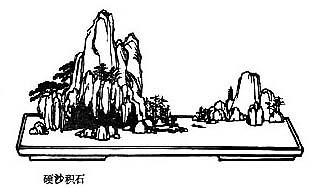Sun Zi 
 – The Art of War
– The Art of War
Chinese strategy explained : know yourself and the ennemy, use deception, spies, and "win with ease". Tr. Giles (en, annotated) and Amiot (fr).
Tactical Dispositions
Ts`ao Kung explains the Chinese meaning of the words for the title of this chapter: "marching and countermarching on the part of the two armies with a view to discovering each other's condition." Tu Mu says: "It is through the dispositions of an army that its condition may be discovered. Conceal your dispositions, and your condition will remain secret, which leads to victory,; show your dispositions, and your condition will become patent, which leads to defeat." Wang Hsi remarks that the good general can "secure success by modifying his tactics to meet those of the enemy."
Sunzi IV. 7.
To see victory only when it is within the ken of the common herd is not the acme of excellence.1
Neither is it the acme of excellence if you fight and conquer and the whole Empire says, "Well done!"2
Giles IV.8,9.
Savoir l'art de vaincre comme ceux qui ont fourni cette même carrière avec honneur, c'est précisément où vous devez tendre ; vouloir l'emporter sur tous, et chercher à raffiner dans les choses militaires, c'est risquer de ne pas égaler les grands maîtres, c'est s'exposer même à rester infiniment au-dessous d'eux, car c'est ici où ce qui est au-dessus du bon n'est pas bon lui-même. Remporter des victoires par le moyen des combats a été regardé de tous temps par l'Univers entier comme quelque chose de bon, mais j'ose vous le dire, c'est encore ici où ce qui est au-dessus du bon est souvent pire que le mauvais. Prédire une victoire que l'homme ordinaire peut prévoir, et être appelé universellement expert, n'est pas le faîte de l'habileté guerrière.
Amiot

The Art of War – Sun Zi IV. 7. – Chinese off/on – Français/English
Alias Sun Tzu, Sun Wu, Sun Tse, Sunzi Bingfa, Souen Tseu, Souen Wou, 孫武.
The Book of Odes, The Analects, Great Learning, Doctrine of the Mean, Three-characters book, The Book of Changes, The Way and its Power, 300 Tang Poems, The Art of War, Thirty-Six Strategies
Welcome, help, notes, introduction, table.
Index – Contact – Top
